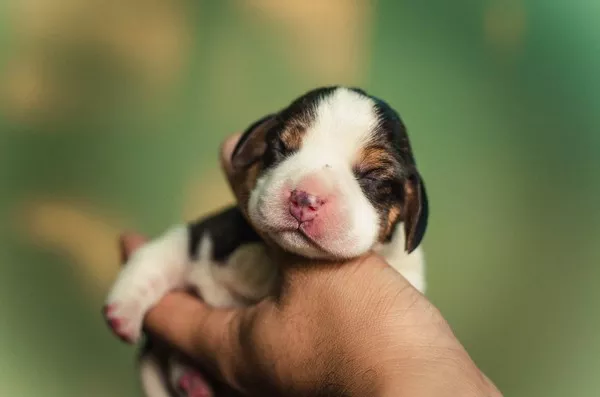Rabbits and cats are among the most popular pets worldwide, each with unique dietary requirements that are vital for their health and wellbeing. As a responsible pet owner, understanding these requirements is crucial, especially when considering whether it is appropriate to feed one species’ food to another. This article will explore the dietary needs of rabbits, the components of cat food, and the potential consequences of feeding cat food to rabbits. We will also discuss suitable dietary alternatives and tips for ensuring your rabbit remains healthy and happy.
Understanding Rabbit Nutrition
The Digestive System of Rabbits
Rabbits are herbivores with a unique digestive system that is adapted for processing high-fiber plant material. Their gastrointestinal tract consists of several components, including:
Mouth: Rabbits have continuously growing teeth that require constant wear. Chewing fibrous foods helps to keep their teeth at a manageable length.
Stomach: While rabbits have a stomach similar to other mammals, it is relatively small and designed for quick digestion.
Cecum: This is a significant part of a rabbit’s digestive system. It contains microorganisms that ferment fiber, breaking it down into volatile fatty acids that the rabbit can absorb as nutrients.
Colon: The colon is responsible for the absorption of water and the formation of feces. Rabbits produce two types of feces: hard feces and soft cecotropes, which they eat for additional nutrients.
Essential Nutrients for Rabbits
Rabbits require a balanced diet that includes:
Fiber: This is the most crucial component of a rabbit’s diet. High-fiber foods such as hay (especially timothy hay) should make up the majority of their intake, promoting healthy digestion and preventing gastrointestinal stasis.
Fresh Vegetables: Leafy greens such as romaine lettuce, cilantro, and kale provide essential vitamins and minerals.
Pellets: High-quality rabbit pellets can be included in small amounts, but they should not be the primary food source. Look for pellets that are high in fiber and low in protein.
Water: Fresh water should always be available. Rabbits require hydration for overall health and proper digestion.
Treats: Fruits and other small treats can be offered occasionally but should not make up more than 10% of their diet.
Common Dietary Mistakes
Many rabbit owners unknowingly make dietary mistakes that can lead to health issues. Common errors include:
- Feeding excessive pellets, which can lead to obesity and digestive problems.
- Offering high-sugar or starchy foods, such as carrots and fruits, in large quantities.
- Neglecting the importance of hay, which is critical for dental health and digestion.
The Composition of Cat Food
Nutritional Breakdown
Cat food is specifically formulated to meet the dietary needs of felines, which are obligate carnivores. The key components of cat food typically include:
Protein: High levels of animal protein are necessary for cats, often making up 30% to 50% of their diet.
Fats: Essential fatty acids are critical for energy and skin health. Cat food usually contains 15% to 25% fat.
Carbohydrates: While not essential, some carbohydrates are included in cat food, usually ranging from 0% to 20%.
Vitamins and Minerals: A range of vitamins and minerals, such as taurine, are added to support feline health.
Water: While not a nutritional component, moisture content is crucial, especially in wet cat food.
Why Cat Food is Not Suitable for Rabbits
Rabbits and cats have vastly different nutritional requirements, primarily due to their differing digestive systems. The high protein and fat content in cat food can be harmful to rabbits, leading to various health problems.
Potential Risks of Feeding Cat Food to Rabbits
Obesity: The high caloric content in cat food can lead to rapid weight gain in rabbits, resulting in obesity-related health issues.
Digestive Problems: Rabbits lack the enzymes necessary to process the protein and fat levels found in cat food, leading to gastrointestinal upset, diarrhea, or even more severe digestive disorders.
Nutritional Imbalance: Feeding cat food can result in a lack of essential nutrients that rabbits require, particularly fiber. This imbalance can lead to serious health issues, including dental problems and compromised immune function.
Kidney Damage: High protein levels can put a strain on a rabbit’s kidneys, potentially leading to renal failure over time.
Behavioral Changes: An improper diet can lead to changes in behavior, including lethargy or hyperactivity, as the rabbit’s body struggles to adapt to unsuitable food.
Recognizing Signs of Nutritional Issues in Rabbits
It’s crucial for rabbit owners to recognize the signs of potential health problems resulting from improper diet:
Weight Changes: Sudden weight loss or gain can indicate nutritional deficiencies or excesses.
Dental Issues: Overgrown teeth may result from a lack of proper chewable foods like hay.
Gastrointestinal Distress: Symptoms may include bloating, diarrhea, or a lack of fecal production.
Lethargy: Decreased activity levels can signal health problems, including dietary imbalances.
Changes in Appetite: A sudden loss of interest in food can indicate digestive issues or other health concerns.
What to Feed Your Rabbit Instead
Ideal Rabbit Diet Components
Hay: The cornerstone of a rabbit’s diet, hay should be available at all times. Timothy hay, orchard grass, and meadow hay are excellent choices.
Fresh Vegetables: Introduce a variety of leafy greens daily. Aim for a mix of dark leafy greens and some lighter greens.
Pellets: Choose a high-quality pellet designed for rabbits. Ensure it is high in fiber and low in protein and fat.
Fruits and Treats: Offer fruits like apples and strawberries in moderation. Other treats can include small amounts of unsweetened dried herbs.
Water: Fresh, clean water should always be available. Ensure that water bottles or bowls are kept clean.
Preparing Homemade Rabbit Treats
You can create healthy, homemade treats for your rabbit using safe fruits and vegetables. Here are some ideas:
Herbal Mixes: Dried herbs such as basil, parsley, and dill can be mixed for a tasty treat.
Fruit Chips: Dehydrate small slices of apples or bananas for a crunchy snack.
Veggie Sticks: Thinly slice carrots or bell peppers for a nutritious nibble.
Supplements
In some cases, it may be beneficial to offer supplements, particularly for rabbits with specific health needs. Consult with a veterinarian to determine if your rabbit may need additional vitamins or minerals.
Best Practices for Rabbit Feeding
Gradual Dietary Changes
If you need to change your rabbit’s diet, do so gradually. Sudden changes can upset their digestive system. Introduce new foods slowly over several days, monitoring their reaction to prevent digestive upset.
Portion Control
Be mindful of portion sizes, especially with high-calorie treats and pellets. Keep track of your rabbit’s weight and adjust food intake accordingly.
Regular Veterinary Check-ups
Regular vet visits are essential for monitoring your rabbit’s health. Your veterinarian can offer personalized dietary recommendations based on your rabbit’s age, weight, and health status.
Understanding Rabbit Behavior and Enrichment
Natural Foraging Behavior
Rabbits are natural foragers, and they enjoy exploring their environment for food. Providing a variety of foods and allowing them to forage can enhance their mental stimulation and prevent boredom.
Toys and Enrichment
In addition to food, rabbits need toys and enrichment activities. Chew toys, tunnels, and hideaways can keep your rabbit engaged and encourage natural behaviors. Rotate toys regularly to maintain their interest.
Social Interaction
Rabbits are social creatures that benefit from interaction with humans and other rabbits. Spend quality time with your rabbit daily to strengthen your bond and promote mental health.
Conclusion
In summary, feeding a rabbit cat food is not advisable due to the significant differences in their nutritional requirements. Rabbits thrive on a high-fiber, plant-based diet that supports their unique digestive systems. Instead of cat food, provide a balanced diet consisting primarily of hay, fresh vegetables, and limited pellets designed specifically for rabbits.
By being attentive to your rabbit’s dietary needs and providing proper care, you can ensure they lead a healthy and fulfilling life. If you have any doubts or questions about your rabbit’s diet, consult with a veterinarian who specializes in exotic animals. Remember, the health and happiness of your furry friend depend on the choices you make as a pet owner.
Related Topics:


























